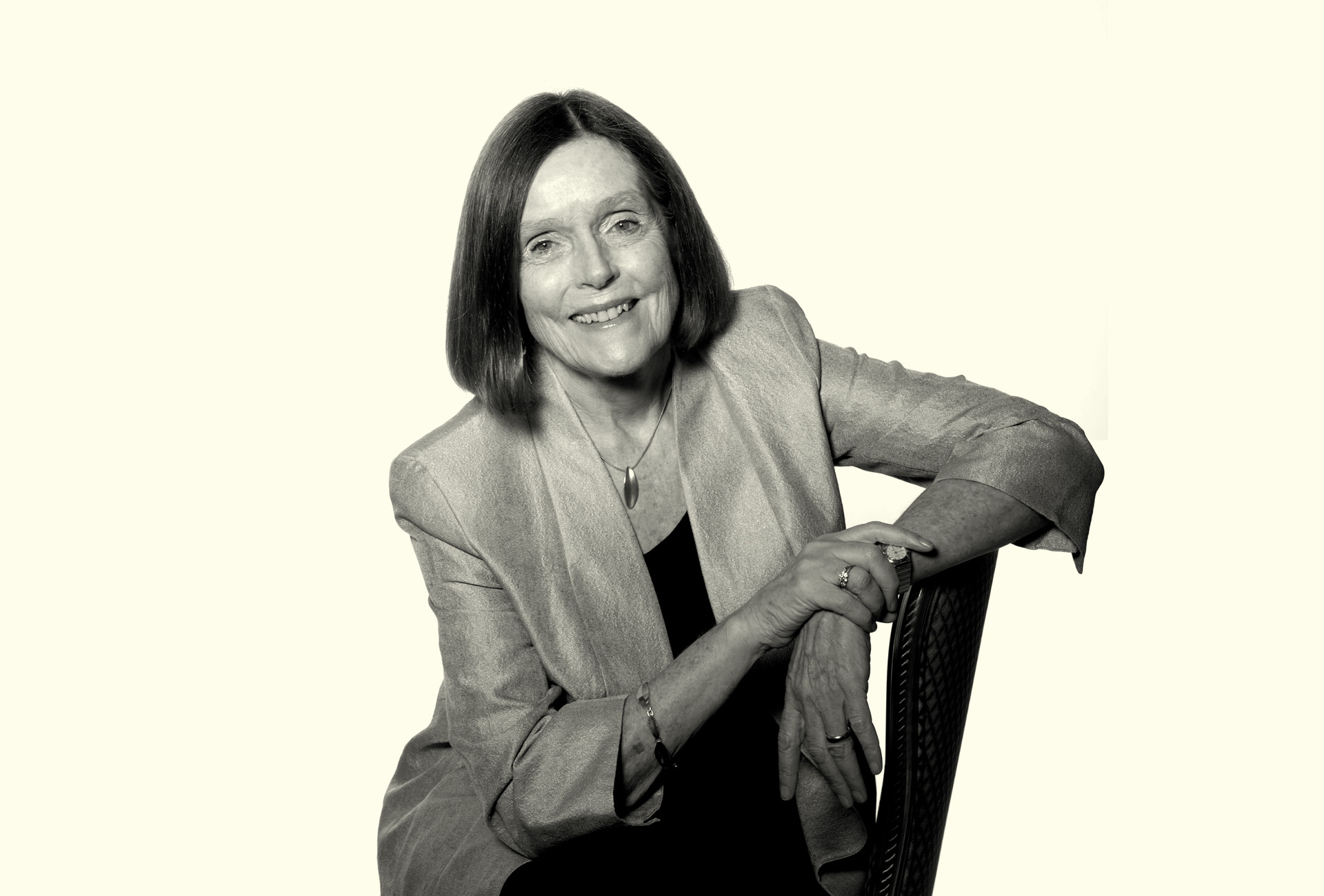The Pro Bene Meritis award is the highest honor bestowed by the College of Liberal Arts. Since 1984, the annual award has been given to alumni, faculty members and friends of the college who are committed to the liberal arts, have made outstanding contributions in professional or philanthropic pursuits or have participated in service related to the college.
Elizabeth Cullingford
Education: B.A., M.A. and Ph.D. in English Literature ’66-’78, University of Oxford
Hometown: Born in England, raised in Trinidad, educated at Oxford, ended up in Austin
Since arriving at UT Austin in 1982, Elizabeth Cullingford has published widely in British literature and poetry and has won several teaching awards, including membership in the Academy of Distinguished Teachers. She has held the Jane Weinert Blumberg Chair in English for 10 years. Ranked in the top 20 graduate programs, the English Department has flourished under her leadership with the creation of the Master of Fine Arts in Creative Writing and the first advisory committee, which is working toward establishing graduate fellowships, an inaugural Plan II professorship in English, and scholarships for the Oxford Program.
Which book or play has been most influential to you?
When I read Jane Austen, I wish I could write sentences like her. When I see Shakespeare, I am amazed by how much he understood human nature. Dickens, as a social critic, is perennially relevant. But recently, the books that have influenced me are not literary. They are about climate change and overpopulation: Naomi Klein’s This Changes Everything: Capitalism Versus the Climate, and Alan Weisman’s Countdown: Our Last Best Hope for a Future on Earth.
“Traveling showed me that my assumptions about how life should be lived were often one-dimensional. I learned from the French that leisure time cannot be neglected, and that you can never put too much garlic in your salad dressing. I learned from the Irish that conversation is an art and drinking a science.”
Elizabeth Cullingford
Who has been the greatest influence in your life?
Many people have influenced me, beginning with my mother. I always admired her energy, curiosity, humor and absolutely indomitable spirit. I hated her politics though, and we were always arguing. The nuns at my convent school taught me the importance of social justice. Sister Margaret Helen saw something in me that I didn’t see in myself: intellectual potential and a talent for writing. She challenged me to read difficult books, including Shakespeare’s plays and modern novels. She inspired me to go to university, and most importantly, she corrected my grammar more sternly than anyone else has ever done.
My teachers at Oxford were all about close reading and historical context, and my Texas colleague Jane Marcus inspired me to become a feminist. I became an environmentalist on my own through reading and observation of nature. My husband, Alan, never procrastinates and seldom moans about the work he has to do. I have tried without success to emulate him, so I suppose you could say I wish he had influenced me more than he has.
How have extensive travel and living in so many places influenced your life?
Traveling showed me that my assumptions about how life should be lived were often one-dimensional. I learned from the French that leisure time cannot be neglected, and that you can never put too much garlic in your salad dressing. I learned from the Irish that conversation is an art and drinking a science. The Trinidadians taught me to love blue skies and sudden rains, spicy food and the sound of a steel band. In England, I came to understand the importance of civility and the virtues of apology. I also became addicted to beautiful old buildings, even if they were cathedrals. I made friends whom I still see often. What did I learn in Texas? That a friendly smile and a warm, if transient, connection with people you meet goes a long way toward having a good day. That feminism is essential. And that administration can be vastly entertaining.
What do you hope your students gain from taking your class?
I’d like to convey the joy of reading deeply and carefully, of using books, plays and movies to develop empathy with other people who lived in other times and other places. I want them to develop imagination and judgment at the same time. I hope they will continue reading and asking themselves difficult questions long after they leave UT. The College of Liberal Arts is a hotbed of serious intellectuals (my son assures me that it leaves Yale and Berkeley in the dust), and I feel proud to be a part of such a lively group.
